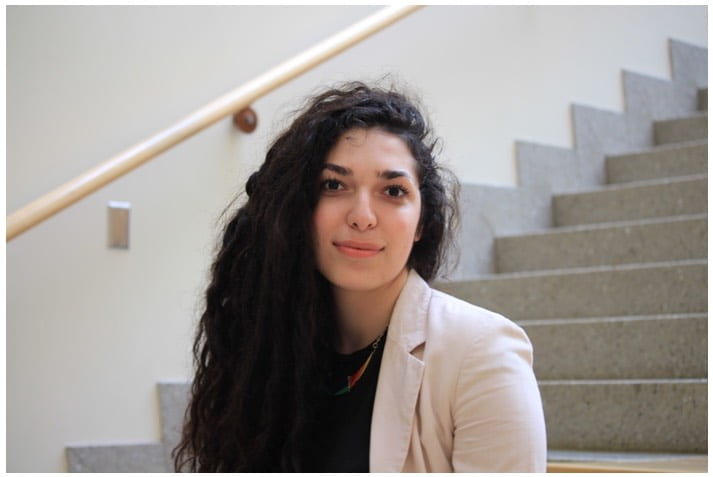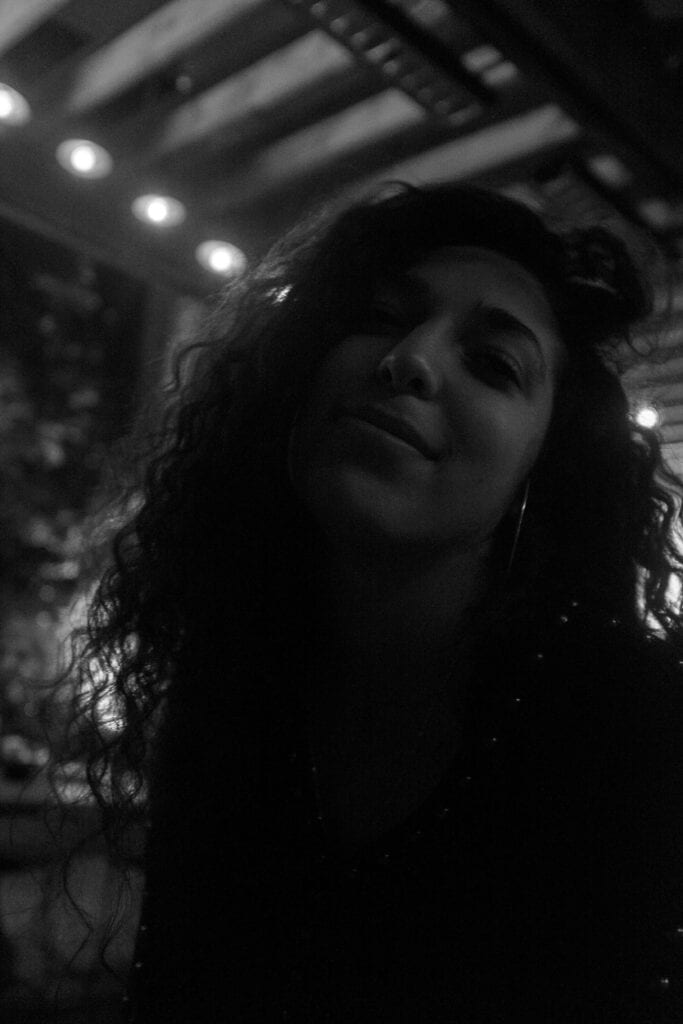
The president of the Student Association for Global Affairs (SAGA) shares her views about women in international relations and the unique nature of our school. She also discusses job opportunities for students, and reveals her fascinating past experiences working abroad in the first of a series of conversations with CGA leaders conducted by Global Affair Review.
Interview by Nicole Monette.
What influenced you to lead SAGA?
At the end of the 2021 Spring semester, I reflected on the year, and as president of the Transnational Security Club, I realized I could picture myself filling a role at SAGA and contributing to the organization. I had interacted with the previous SAGA leadership team, who had experienced many pandemic-related restrictions regarding student engagement. I asked myself how I could make the students at CGA more connected, since one of my main goals in graduate school was to make lifelong connections. I believed I was capable of creating a sense of community amongst the student body.
What do you think is the significance of embracing female leadership roles at CGA and elsewhere?
CGA is an outlier in terms of the number of women in the program, which is something I love because not all programs are like ours. I believed that the leadership of SAGA should represent the program and its diversity, so it only made sense for a woman to be president. Also, women tend to be underrepresented in the field of international affairs, and past SAGA leadership teams were composed of mostly men.
Would you define yourself as a feminist?
I would definitely define myself as a feminist. We need to stop being afraid to use that word. Men tend to fear it, as it triggers images of aggressive women. I want to raise the voices of women in this industry by pushing boundaries. Feminism is a part of my character.
Which historical figure do you most admire?
I admire Ada Lovelace, a 19th Century English mathematician and writer who coded the first computer program. Unfortunately, Lovelace never received credit for what she accomplished as most people don’t even know her name. It’s also essential to give credit to women in my life who have played important roles both personally and academically. For example, I chose Professor Mary Beth Altier to be my capstone advisor since I really admire her work. I also respect and commend the many female leaders at the CGA and look up to them as great examples.
“I would definitely define myself as a feminist. We need to stop being afraid to use that word. Men tend to fear it, as it triggers images of aggressive women.”
What countries/cities have you lived in, and where would you most like to live in the future?
I was born and raised in Armenia and immigrated to the U.S. when I was a teenager. I attended high school in Los Angeles and then moved to Washington, D.C. to complete my undergraduate degree at American University. I moved to Georgia for my Peace Corps service in 2018 and was evacuated in 2020 due to the pandemic. Now, I live in Brooklyn. As for where I would most like to live, I don’t think about that question because in the foreign service it’s not possible to choose where you end up, because the government sends you where you’re needed most. However, I love the challenge of a new place.
How did your experience serving in the Peace Corps help you at CGA?
I served in the Republic of Georgia from 2018 to 2020 as an English Education Volunteer. My primary project was teaching English in a minority Armenian community. I had many secondary projects as well. I organized a grant to purchase computers and other technology for my English cabinet, since I wanted the children and teachers to have tech skills. My proudest moment was organizing an intercultural conference for youth, funded by the UN, in which I brought together 30 students from Armenian, Azeri, and Georgian communities. We discussed how to talk about culture, acceptance, and difference without fighting. It was a moment of pride to see all the students together, since they represent the next generation of leaders. For many of the children, it was their first time being together with members of other cultural groups, and this experience helped me to become more interested in international relations as a field. I also participated in gender workshops in which gender stereotypes were discussed. Harassment against women is a common issue in the country and my group sought to moderate conversations regarding this issue amongst diverse communities throughout the country. Since the vocabulary doesn’t exist in Georgia for many of these issues, this was a challenge.
“Today, especially, there are many job opportunities. The key is to market the degree to fit into any field you want. The way we, as global affairs graduates, think, write, and tackle problems is useful in most jobs.”
What is something that characterizes CGA students?
We have a very diverse perspective in our classrooms, which is not common in other schools. Since the class sizes are small at CGA, the diversity among students is very noticeable, and you get to know people from all over the world. Most classes have people from multiple countries, and the UN is basically represented in every classroom. Students are exposed to various perspectives, ideals, religions, languages, identities, etc. This really adds to the depth of the classroom and the level of the conversations.
Name one feature that you think distinguishes CGA from other schools.
Hands down the practicums. I sought a masters program that was heavily focused on hands-on experience. At CGA, students are able to work and collaborate with organizations, companies, and government on specific problems to try to find solutions. I have been involved in two practicums during my time at the CGA so far.
Are there good job opportunities for global affairs graduates?
Today, especially, there are many job opportunities. The key is to market the degree to fit into any field you want. The way we, as global affairs graduates, think, write, and tackle problems is useful in most jobs. I currently work in research and investigations and my experiences at the CGA have been very useful. It’s possible to work in diverse fields such as politics, foreign affairs, communications, and academics. There are so many different career paths, it’s just a matter of marketing ourselves in a manner that fits the job.
“At CGA, the diversity among students is very noticeable. Most classes have people from multiple countries, and the UN is basically represented in every classroom. Students are exposed to various perspectives, ideals, religions, languages, and identities”.
Pick one issue in global affairs that you think matters most in 2021.
I believe the rise and dominance of a more authoritative China is one of the most important global affairs issues of today. President Xi and the Chinese Communist Party are constantly pushing boundaries, from the theft of intellectual property, to constant censoring, to the repression of the country’s Muslim minority. President Xi is also currently attempting to extend the length of his rule, a common theme amongst other authoritarian dictators such as Putin. It is very unfortunate that Chinese people themselves fear speaking up due to the government’s repressive tactics silencing its own population. Individuality and privacy are not respected in China, along with many other American values that we take for granted. The international community must take these actions and issues more seriously and come together in an effort to circumvent the challenges that China poses.

What do you plan to do after graduation?
I am a Payne fellow, which is a federal fellowship program offered to a select group of students. After graduation, I will enter the foreign service with the United States Agency for International Development (USAID) to work on Crisis, Stabilization, and Governance issues abroad. I will be sent wherever I am needed.
Name one thing you love about New York, and one you dislike.
I love so much about New York, but something I love in particular is walking down the street and looking up and seeing all the giant buildings, and I feel so small in comparison. I think about all the incredible things that are happening all around me, because New York is truly the place to accomplish all of your dreams. One thing I dislike is that it’s loud, but that’s about it! I’m even welcoming of the things I dislike about the city, and I’m so thankful to be here. Living in New York changes your life perspective and it teaches you what it’s like to hustle. I have a lot of respect for how hardworking the people here are. GAR